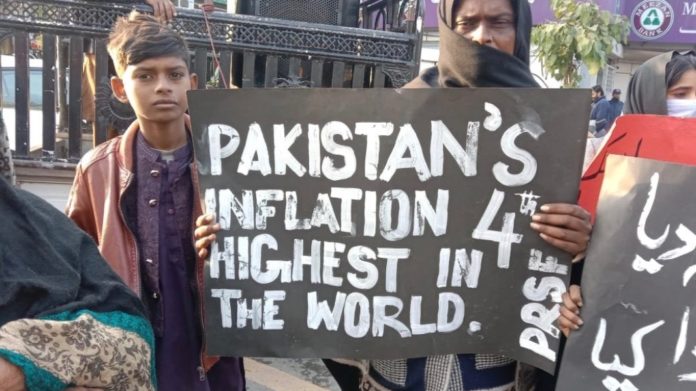In the wake of the economic challenges that have gripped Pakistan, the World Economic Forum’s Executive Opinion Survey for 2024 has highlighted the top five risks that the nation is grappling with. These risks paint a daunting picture for Pakistan’s immediate future, encompassing a range of economic, environmental, and societal concerns.
🇵🇰 Pakistan top 5 risks in 2024:
1. Economic downturn
2. Energy supply shortage
3. Extreme weather events
4. Inflation
5. Misinformation and disinformationNote: top five risks identified by the Executive Opinion Survey, World Economic Forum 2024
— World of Statistics (@stats_feed) February 1, 2024
Economic Downturn
The first and perhaps most pressing risk is the economic downturn. The WEF report indicates a significant threat of a debt crisis, sustained inflation, and even the potential collapse of the state. Pakistan is currently navigating a precarious situation, with the cost-of-living crisis looming large. The affordability and availability of necessities have become critical factors contributing to social and political instability.

Energy Supply Shortage
Linked closely to the economic challenges is the second risk – an energy supply shortage. The report warns that a combination of extreme weather events and constrained supply could exacerbate the ongoing cost-of-living crisis, potentially leading to a catastrophic scenario of hunger and distress for millions. The energy crisis, if not addressed adequately, could escalate into a humanitarian crisis, particularly affecting the poorest emerging markets.
Inflation Woes
Inflation emerges as the third risk on the list, intertwining with the economic challenges faced by Pakistan. The report underscores the potential for sustained or rapid inflation, which further compounds the difficulties for the population, making basic necessities harder to afford.
Extreme Weather Events
Extreme weather events take the fourth spot, posing a significant threat to Pakistan. The WEF report suggests that the impacts of climate change could turn the cost-of-living crisis into a broader humanitarian issue. The simultaneous occurrence of food and debt crises in countries like Tunisia, Ghana, Lebanon, and Egypt adds another layer of complexity to the challenges faced by Pakistan.

Misinformation and Disinformation
The fifth risk identified is the proliferation of misinformation and disinformation. In an era dominated by digital communication, false narratives can quickly spread, influencing public opinion and exacerbating existing challenges. Addressing this risk requires a concerted effort to promote accurate information and media literacy.
Amid these challenges, the WEF notes that the short-term risk of the cost-of-living crisis is the most immediate concern, while the failure of climate mitigation and climate adaptation poses the largest long-term threat. Water shortage, particularly affecting women and girls responsible for water collection, is also highlighted, with implications for health and education outcomes.
As Pakistan grapples with these risks, international assistance and partnerships, as seen with commitments from the UAE and Saudi Arabia, will play a crucial role in mitigating the challenges and fostering sustainable solutions. The ongoing efforts to secure economic packages and investments underscore the global interconnectedness in addressing the multifaceted risks facing the nation.
Stay tuned to Brandsynario for more.











































